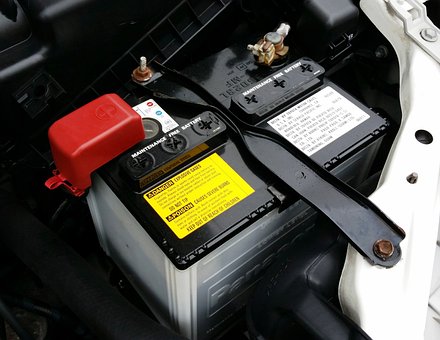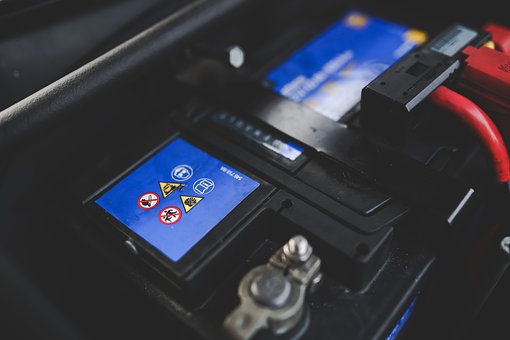
You are correct. Before purchasing a new car, there are several things to think about. Despite the fact that electric cars are recognized to have a smaller environmental impact than gasoline cars, it is claimed that the batteries in these cars may be worse for your health. Are Electric Car Batteries Harmful to Your Health?
Electric vehicle batteries release a gasless contaminant known as electromagnetic field radiation (EMF) So, Electric car batteries harmful to your health According to contemporary science, prolonged exposure to the battery’s energy release can have a negative impact on one’s health. EMF radiation is also emitted by wireless gadgets like your cell phone, Bluetooth, and Wi-Fi.
Chronic exposure can cause behavioral problems, health problems, and neurological damage. You are exposed more to EMF radiation the closer you are to it. You are not completely powerless, though. Here are some tips to lessen your exposure to EMF radiation:
Try to find a place to stop so you may answer or make calls outside the car. If that isn’t practical, try conversing with the windows open to prevent the radiation from being trapped inside the vehicle.
When you can, turn off the computer systems in your electric vehicle because they also produce radiation.
[toc]
Are Electric Cars Harmful To Humans?
Every year, the popularity of electric vehicles increases. since more individuals are concerned about the environment. They also try to cut back on their use of fossil fuels. However, some individuals worry that the batteries in electric cars could be dangerous to people.
However, it’s crucial to remember that the engines in electric automobiles still release pollution. It might even be more dangerous than the pollutants from the batteries of electric cars. So, are batteries for electric cars dangerous? The solution is not straightforward. Batteries for electric vehicles may be unhealthy for people, according to some academics. Others think the potential risks have been exaggerated.
The possibility for harmful gases to be released from electric car batteries is one of the key issues. These gases have the potential to injure people and perhaps lead to cancer.
Batteries for electric cars are also liquid-free and sealed. They are therefore significantly less likely to leak than conventional automobile batteries. This lessens the chance of being exposed to harmful substances in the event of a battery failure or accident.
Electric cars aren’t pollution-free; they have to get their energy from somewhere.
Alexandra Paul
Electric Car Battery-Compromising Elements

Physical Injury
Due to their ability to store large amounts of energy and recover that energy fast, lithium-ion batteries are most frequently utilized in Electric cars. However, they are prone to cell rupture and thermal runaway. In extreme circumstances, combustion may result.
A short circuit or the electrolytes spilling out of the battery could result from damage to the battery and its casing.
To put things in perspective, an Electric car is just as dangerous as an ICE vehicle in any case where the car has been compromised, just as ICE vehicles have a fuel tank full of flammable liquid.
Short Circuit
As the battery empties, a short circuit makes the battery heat up more quickly. Furthermore, it warms up more quickly the faster it discharges. The electrolyte is a combustible gas that eventually may vaporize and seep out.
Events might swiftly spiral out of control since the battery is fastened to other car components that could set off an explosion. A short circuit can also result from overcharging.
When a cell is subjected to an excessive amount of energy, pressure can build up and undermine the cell’s structure. posing the risk of a runaway chain reaction.
Lithium-ion battery packs have fail-safe circuitry that turns the battery off when the voltage veers off the safe range in order to lessen these dangers.
Unreliable Charging
Battery safety greatly depends on how we charge our electric vehicles. Manufacturers of chargers are subject to tight rules and safety requirements, to ensure the charger’s quality. However, some risks continue:
Improper usage of a “granny cable” (in the cable control box, ICCB, cable)
Hiring a person that is unqualified to install your charger.
Improper and inferior materials used in electrical and cabling construction.
Cutting corners to save a few dollars here probably isn’t a good idea because your health and safety are being compromised.
Are Electric Car Batteries Dangerous?
They can be, that much is true. However, this does not imply that you should avoid them at all costs since they are risky. When using the batteries for electric cars, there are a few things you can do to keep yourself safe.
So, are batteries for electric cars dangerous? Yes, but only if you don’t take the appropriate safety measures. You can use the batteries for electric cars safely if you adhere to the safety guidelines.
First and foremost, always adhere to the safety guidelines included with your battery. Second, avoid subjecting your battery to high temperatures. Finally, be sure to keep a fire extinguisher handy for emergencies.
Electric car batteries can be as safe as any other type of battery if you follow these safety guidelines. Since they don’t contain any combustible components, they might even be safer.
Are Electric Car Batteries Dangerous in A Crash?
Due to worries about safety, some people are still unwilling to transition to electric vehicles. One of the major concerns is that the batteries in electric cars could be harmful in an accident. So, are batteries for electric cars dangerous?
The quick response is no. Batteries for electric vehicles are not risky. But if not handled properly, batteries can be hazardous. For instance, faulty or overheated electric car batteries may catch fire.
The fact that electric automobiles have a far lower center of gravity than gasoline-powered vehicles is one of the reasons why their batteries are less harmful. As a result, electric vehicles are less prone to flip over in collisions.
Also, the chance of an explosion is lower for electric vehicles than for gasoline ones. Batteries for electric cars are also tougher than those for gasoline ones.
While gasoline engines typically only last for 3-5 years, the batteries in electric cars can last up to 10 years. This means that owners of electric vehicles won’t need to worry about costly maintenance or replacements.
How To Keep Electric Car Batteries Secure?
There is a misconception that electric batteries are unsafe, however, this is untrue. Electric batteries are extremely dependable and safe. However, there are several actions you can take to keep them even safer.
Make sure the battery is protected as one action you can take. This will aid in keeping it shielded from the elements and the weather. Electric batteries are manufactured with the requisite weather resistance in mind. But going the extra mile never hurts.
Another precaution is to keep the battery charged. This will make it more likely that it will be available whenever you need it. Additionally, it will aid in halting the battery’s charge loss. Additionally, make sure that you regularly maintain the battery. It must be cleaned, and the connections must be examined. You can contribute to keeping the battery in good condition by doing this.
Maintaining a clean battery is another action you may take. Additionally, this will assist keep it from the elements and retain its performance. Make sure to clear the batteries of any dirt or debris that may accumulate.
What Are Some Of The Dangers Associated With Electric Car Batteries?

Batteries for electric vehicles are not as harmful as some people might believe. We must be aware of a few risks associated with electric car batteries, though.
The presence of sulfuric acid in electric car batteries is one of their hazards. This acid would severely burn your skin if it came in contact with it. This is more likely to occur if the battery is overheated or damaged in any manner. Serious casualties could result from the explosion of an electric vehicle battery.
When handling the batteries for electric vehicles, it’s crucial to exercise caution at all times. also, to confirm that you are donning the appropriate safety gear. The potential for an explosion of batteries in electric cars is another risk.
It is critical to be informed about these risks. When it comes to electric car batteries, measures must also be taken. However, you shouldn’t let the risks associated with electric car batteries prevent you from buying one. The use of electric car batteries is secure.
Additionally, they offer a number of advantages over conventional gasoline vehicles. An excellent approach to protect the environment and save money on gas is to own an electric vehicle.
Electric Car battery Lifespan
The sophisticated batteries in Electric cars are built for long life, but they will ultimately wear out, much like the engines in conventional vehicles.
For their batteries, the majority of manufacturers are currently providing 8-year, 100,000-mile guarantees. Nissan offers supplementary battery capacity loss insurance for five years or 60,000 miles.
In jurisdictions that have enacted the California emissions warranty coverage terms, which call for at least 10-year coverage for batteries for partially emission-free vehicles, manufacturers have additionally increased their coverage (which includes Electric cars).
Electric Car Battery Safety

Aside from Electric car-specific requirements for limiting chemical spillage from batteries, securing batteries during an accident, and isolating the chassis from the high-voltage system to prevent electric shock.
Electric cars are subjected to the same stringent safety testing and requirements as conventional vehicles sold in the United States.
Additionally, Electric cars frequently offer better ride quality than conventional vehicles because of their lower center of gravity, which reduces rolling-over risk.
The Batteries are Toxic and Don’t Last.

Modern electric vehicles typically use lithium-ion, lithium-iron-phosphate, or lithium-iron-cobalt batteries. These battery varieties are safe to use.
The battery capacity will decrease to 85% after around 10 years, which is thought to be the maximum amount that may be used in an electric vehicle.
Batteries will thereafter be used for an additional 10 years in applications like household energy storage, enabling the use of locally produced solar PV electricity at night.
The batteries are virtually entirely recyclable after this point. Manufacturers of electric vehicles today offer an eight-year general battery guarantee.
Battery Charging Cycles
Although it’s not unheard of, most drivers don’t start their car until the fuel is all gone. The same holds true with Electric cars.
The majority of owners are likely to refrain from entirely emptying the battery pack, even though they may drive their cars to a very low state of charge.
It’s feasible that even fewer Electric car owners would ever entirely deplete their vehicle’s battery pack due to how simple it is to plug in at home.
Electric Vehicle Batteries Can Explode After an Accident
Whether a car collision is major or minor, with or without casualties, it can require a number of people and organizations to handle anything from diverting traffic to caring for the hurt to cleaning up the wreckage.
In a perfect world, the people who are called to the scene are skilled experts who know how to deal with scenarios like chemical leaks from vehicles and automobiles that need to be towed.
According to Chattanooga Police Department Beer & Wrecker Officer John Collins, the lithium-ion batteries in electric cars have created a new potential hazard that police, fire departments, as well as towing and wrecker firms, are just now starting to address.
In his remarks to the Chattanooga Beer & Wrecker Board on July 1, Collins said, “This is something fresh new that I wasn’t even aware of a month ago.”
The Wrecker Ordinance and Guidelines for Wrecker Violations of the city may need to be updated, and he made his remarks at the conclusion of the meeting during an early, informal conversation.
If the batteries are damaged, they may get wet, burst, or catch fire, and the resulting gases may be quite dangerous. The lithium-ion versions of batteries cannot be recycled, but conventional lead-acid batteries can and frequently are.
They need to be disassembled since they are several hundred individual lithium-ion cells thick and heavier than those in normal cars. They can explode if improperly disassembled and contain hazardous ingredients.
Some local salvage yards and towing agencies are not aware of the issue.
Tips for Battery Handling to Avoid Harm
| Tips | Description |
|---|---|
| Always put on gloves and safety glasses. | The electrolyte can not only damage clothes, but it will burn skin if left untreated. If you come into contact with the battery’s electrolyte, wash and flush the area with water immediately. If it comes into contact with your eyes, flush immediately with water for 15 minutes and promptly seek medical attention. |
| Remove all potential ignition or flame sources. | Hydrogen and oxygen gases are created during lead-acid battery charging by the electrolyte. A spark or flame can ignite these gases while doing maintenance on lead-acid batteries, which could result in the battery exploding. |
| When taking out a lead-acid battery, be careful. | Because lead acid batteries are so heavy, lifting or moving them by hand frequently results in accidental injury. Make sure you have a firm grip on the battery and the power to hold it securely or use a battery carrier. |
| Ensure the vent caps on the batteries are firmly in place. | An electrolyte can pour out of a vent cap that is too loose or isn’t placed properly, exposing the battery’s internal gases to conditions that could result in an explosion. |
| Batteries should be kept in a cold, dry, and airy space. | Make sure the space is free from all heat sources, flames, and sparks if you want to keep a lot of batteries there. Post signs that say “Flammable” and “No Smoking” in the vicinity. |
Conclusion
Batteries for electric vehicles are not as harmful as some people might believe. The security of their batteries is still a matter of some worry. But recent research has revealed that the batteries in electric cars are extremely secure.
And they present no more of a risk than cars that run on gasoline. So, if you’re thinking about switching to an electric vehicle, don’t be concerned. You’ll stay safe on the road thanks to your batteries.
FAQs
Why are car batteries dangerous?
Lithium batteries have caused a number of fires and explosions in consumer products and at recycling plants in the U.S.
Recycling facilities take a number of precautions to identify and dismantle battery-containing devices before they cause a problem.
Do electric cars pollute more than gas-powered cars?
It shows how to end a conversation or turn off a notice. Because they don’t emit any emissions when driving, electric vehicles are hailed as a more environmentally friendly option than gas-powered ones. But constructing electric autos emits more greenhouse gases than developing a comparable gas-powered vehicle.
Will electric vehicles really reduce pollution?
Electric cars provide for more control over the pollution produced even while they don’t immediately cut pollution. Because less than 11,000 power plants will need to be inspected and upgraded compared to more than 100 million private automobiles, electric vehicles can help reduce auto emissions.
Are Electric car batteries dangerous?
The battery in your Electric car will still deteriorate over time. Although it is possible, these vehicles are extremely expensive, hazardous to operate on, and should only be handled by experts. Compared to gas vehicles, electric vehicles have far fewer moving components and need less maintenance.
Are Electric car batteries bad for the environment?
Electric cars on the road reduce carbon emissions in a net-negative manner, but their manufacture uses a lot of carbon. According to research from Beryll’s Strategy Advisors, manufacturing a 500kg electric car battery in Germany produces 74% more carbon dioxide than manufacturing a conventional automobile.
Are lithium batteries bad for the environment?
The rare earth metals nickel and cobalt, which have a significant environmental impact, are combined in the lithium-ion battery’s cathode. These include resource depletion, ecological toxicity, and global warming.
Post Related to Electric Car & Battery
- How is a Lithium Crisis Tied to an Inflation Reduction Act?- A complete guide 2024
- chevy bolt extended warranty – Latest Updates
- The basics of electric vehicle battery grounding
- How Many Pounds of Raw Materials are Needed to Make an Electric Car Battery
- Thermal Management System of Batteries in Electric Cars and Vehicles – A complete guide 2024
- Tesla Model 3 Error Messages (Error Codes)
- What Kind of Batteries Did Electric Cars Use Before Lithium-Ion?
- Can You Power Your House With Used Electric Car Batteries? If So, Is The Off-Grid System Created From Those Batteries Legal?-An Ultimate guide 2024
- Radiation From Electric Cars
- Are Polyjoule Batteries Fire Resistant?
- Can An Electric Car Battery Be Divide Into 2 Batteries So That You Can Charge Both Of Them At The Same Time And Reduce The Time Of Recharge By Half?
- Nissan Leaf Battery Replacement Cost
